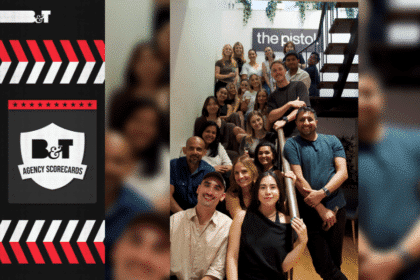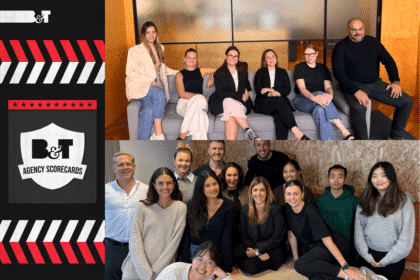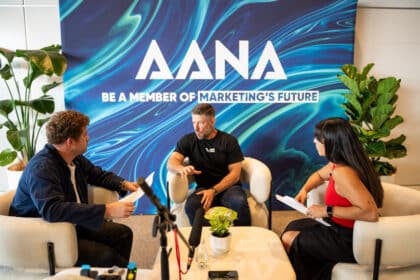A group of social media influencers from around the globe have faced an avalanche of criticism over a recent press trip organised by controversial fashion brand SHEIN.
In an effort to combat its poor brand perception, SHEIN (SHE-in), which recently expanded its operations to Singapore, set about rectifying its image by collaborating with a diverse group of TikTok influencers who were invited to tour its supply chain, “innovation centre,” and warehouse facility in Guangzhou, China, and inspect its questioned labour and supply chain practises for themselves.
Given SHEIN’s production model, the brand has copped its fair share of controversy, with many considering it synonymous with human exploitation as well as contributing to global poverty and the climate crisis, amongst other offences.
Targeted mainly at Gen Zs, the appeal of the Chinese e-commerce mega brand lies primarily in its quick-churn, ultra-cheap business model which is especially efficient in reproducing emerging celebrity fashion trends. The allure is further perpetuated by TikTok and other social media influencers, particularly those that encourage demonstrative “haul” or mass buying.
The all-expenses paid press trip occurred in mid-June and invited attendees to post unpaid media from the influencers, some with followings of as much as four million. The posts exhibited what many are speculating to be manicured depictions of the factories and working conditions, featuring sophisticated machine automations, pristine facilities and smiling workers enjoying humane conditions.
Influencer Destene Sudduth, who commands a multi-million following on TikTok, said in her video: “Upon interviewing the workers, a lot of them were really confused and taken back with the child labour questions and the lead-in-the-clothing questions. They weren’t even sweating. We were the ones sweating!”
https://www.tiktok.com/@itsdestene_/video/7246190820376841514
The influencers soon faced a backlash from social users condemning the influencers’ decision to align with SHEIN. Their positive reviews were called into question for flagrantly ignoring the recorded accusations against the brand, and potentially disseminating misinformation to millions of impressionable followers.
In an Issue Brief published by the U.S.-China Economic and Security Review Commission, the research staff proposed that the response of the U.S. government to the rapid growth in market share of SHEIN and other Chinese e-commerce firms in the U.S. should be stricter mandating of regular compliances according the country’s laws and regulations.
Indictments against SHEIN and other Chinese fast-fashion e-commerce businesses including their suppliers cited in the report include “sourcing goods in violation of the Uyghur Forced Labor Prevention Act”, “routinely violat(ing) U.S. IP rights laws, and the consequences they face are insufficient to deter future violations,” and “U.S. customs and tariff levels disproportionately benefit Chinese e-commerce firms.”
Last year, U.S. news site Bloomberg News uncovered evidence that the brand had sourced cotton from China’s Xinjiang region. This was despite a federal ban on the importation of cotton and other products from the region due to the abuse and forced labour of Xinjiang’s Uyghur people.
SHEIN, not refuting the results, defended that the company takes steps in all its global markets “to ensure we comply with local laws and regulations” and attested to “regular audits” aimed at adhering to “a zero tolerance policy” of forced labour and other social concerns.
A social impact statement on their website reads: “At SHEIN, we harness our fully integrated digital supply chain to limit excess inventory, reducing the possibility of production waste. In addition, we attempt to sell unsold or returned inventory at wholesale pricing before donating it to populations in need.”
In a now deleted post on Instagram, plus-sized influencer Dani Carbonari, who arguably received the greatest backlash, had claimed the brand was “fighting with all of their power to not only show us the truth but continue to improve and be the best they can possibly be.”
On Carboanri’s follow-up video, an attempt to explain her decision to associate with SHEIN, the top comment reads: “Where is the apology for actively promoting a brand that does so much social, ethical, and environmental damage?” Another user expressed: “You said you did your own research. There are several reports and documentaries showing the truth. You literally did nothing.”
But in the midst of all the finger-pointing and hostility surrounding the fast-fashion debate, it stands to question whether so much weight of correcting the wastefulness of the global fashion industry should fall on young people and other individuals who are most likely to engage with brands like SHEIN?
It seems reasonable and fair that if Gen Zs (or anyone for that matter) want to experiment with self-expression through fashion they do so with what’s accessible to them and their disposable income levels.
And so a secondary debate falls once again on the influencer economy and the responsibility creators have to offer their audiences transparency. The Devil’s advocate may ask, are influencers simply held to impossible standards of responsibility that other public figures are excused from?
Feature image source: YouTube / @SHEIN








